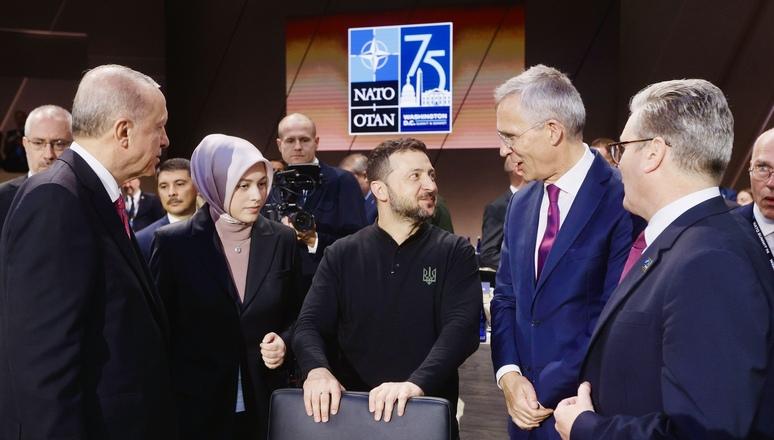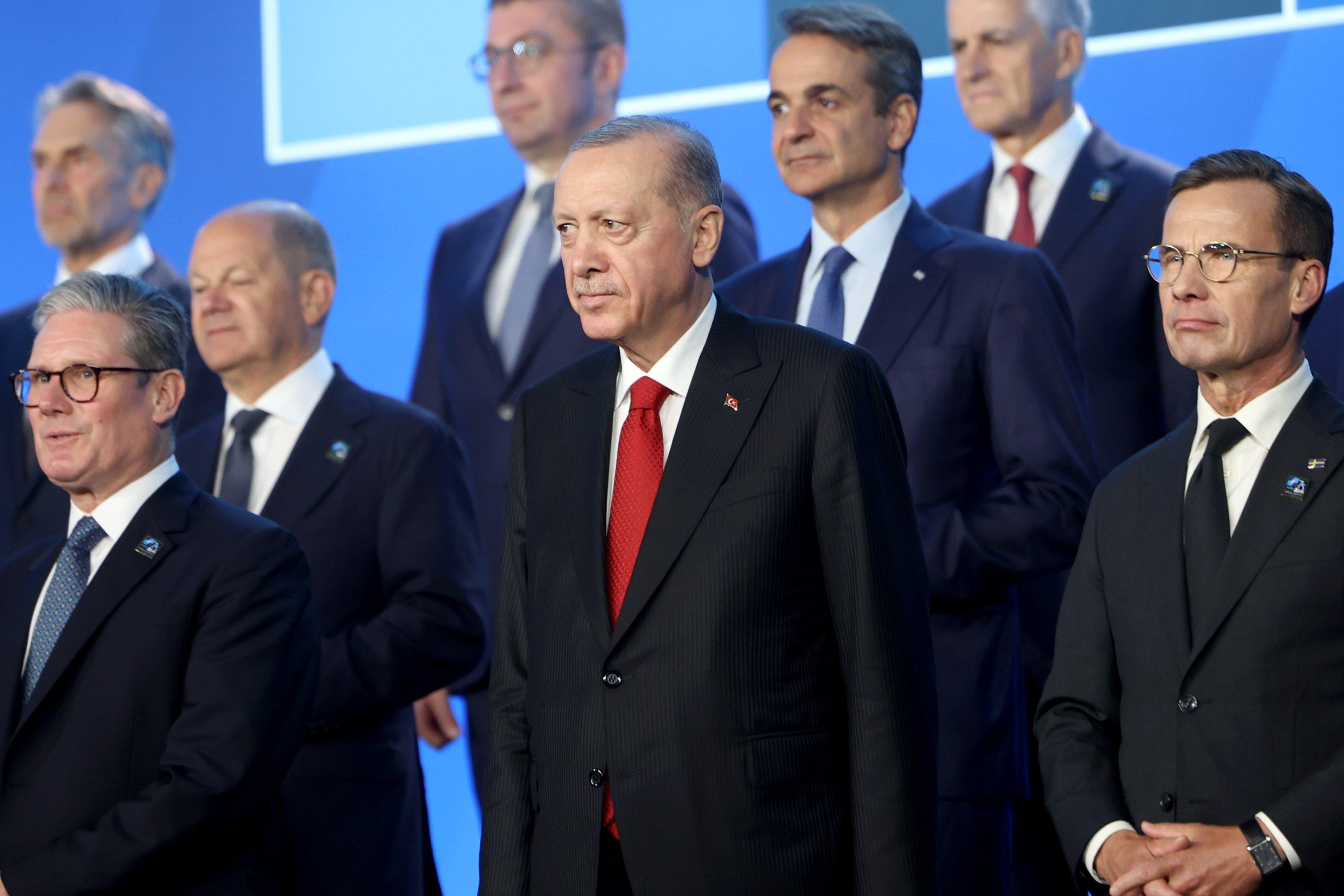How will the Washington summit shape NATO's future? Reforms and strategic decisions
On July 11, NATO leaders gathered in Washington, D.C., to mark the alliance's 75th anniversary amid worsening global security cataclysms stemming from the Russo-Ukraine war, the Israel-Hamas war, confrontation with China, and pro-Iranian axis actions in the Red Sea. Despite the severe challenges, NATO successfully expanded its flanks as Finland and Sweden became new members of the alliance, thus strengthening the anti-Russian coalition.
However, the military alliance is navigating through turbulent waters as Russian troops continue to make gains along Ukraine's Eastern front in the third year of the war. This underscores the urgent need for institutional reforms within NATO, a sentiment echoed by many who viewed the recent Washington summit as a crucial stepping stone in a long-term effort to transform the alliance. These reforms will continue to shape transatlantic security debates in the next three to five years and necessitate difficult strategic decisions on Ukraine.
Indeed, the Ukraine issue remains the key topic for the alliance in light of the recent agreement to continue supplying Kyiv with €40 billion worth of military aid for next year in a bid to give the country long-term reassurances and “shock-proof” support against political hiccups. Ukraine is in a critical stage of the war due to falling short of ammunition and manpower, and therefore, it is looking for more high-precise weaponry and air defence systems to counter Russian ballistic missiles. However, besides weaponry and financial aid, Kyiv is keen on acquiring NATO membership to guarantee its sovereignty.

In terms of sophisticated weaponry, Ukraine pledges to receive F16 fighter jets, including more MiG-29 jets from Poland, and additional Patriot air defence systems following devastating Russian attacks on civilian settlements and urban areas. Notwithstanding expectations, Ukraine’s membership will not be immediate and will be limited to an intensive NATO-Ukraine partnership. Moreover, in the long-term, Kyiv will unlikely make it to full-fledged membership in NATO, and the only viable option is to cooperate with NATO's new special command based in Germany’s Wiesbaden.
Although there was optimism that some NATO countries would discuss the option of deploying NATO boost in Ukraine against the Russian forces, this issue was not included in the main agenda during the Washington summit. For example, France’s earlier suggestion to form an alliance of European military instructors to be deployed in Ukraine received modest enthusiasm within NATO due to the unwillingness of direct confrontation with Russia.

Simultaneously, the Washington summit was a milestone in normalizing ties with another significant member country – Türkiye. Following years of the diplomatic standoff, Ankara agreed to a thaw in exchange for Swedish and Finnish membership approval, including the sales of additional F16 fighter jets. Indeed, the membership bids and the Russo-Ukraine war emboldened Türkiye to trade more concessions with NATO, particularly in the candidacy of Mark Rutte, the upcoming secretary-general of the alliance. However, unlike other NATO member countries, who strongly oppose military aid to Ukraine, Ankara maintains a more pragmatic stance, assisting Kyiv technically and militarily, as well as negotiating with Russia and offering mediation.
As such, Hungary, the leading problematic member of NATO and the current EU President, is the main sceptic behind the alliance's Ukraine policy. The Hungarian Prime Minister Viktor Orban has sought to undermine NATO's role in Ukraine and parrots Putin's talking points on the war, declaring that Ukraine won't be able to hold out against superior Russian forces. Hungary also has no intention of following the rest of the EU in ending purchases of Russian natural gas.
In this regard, Ankara has wide geopolitical interests beyond NATO borders and includes countries like Azerbaijan, Georgia, China, and Central Asian nations while sticking with the alliance's Ukraine policy.
Therefore, despite the Washington summit not leading to long-term agreements on Ukraine and Russia, it did serve as a powerful demonstration of NATO's unwavering commitment to confront Russia.








